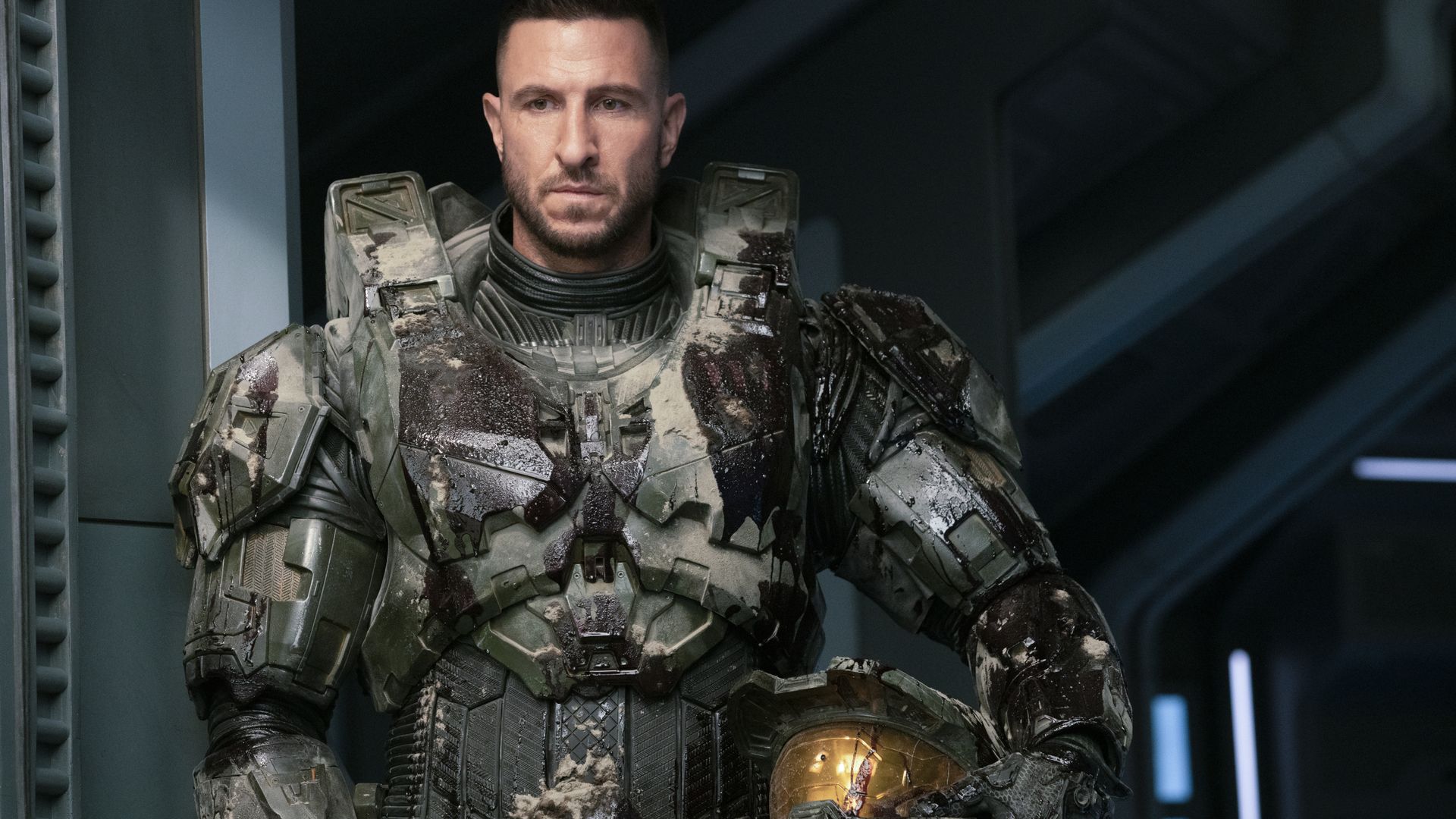How the "Halo" show changes gaming's iconic franchise
Add Axios as your preferred source to
see more of our stories on Google.

Pablo Schreiber as Master Chief. Photo: Adrienn Szabo/Paramount+
The creators of the new live-action "Halo" streaming series braced themselves for fans who might not be ready to see new versions of characters they’d seen in games for 20 years, the show’s executive producer Kiki Wolfkill tells Axios.
Why it matters: As video game adaptations into film and TV become more common, creators have to anticipate how divergence from a game’s established fiction will go over with players.
What they’re saying: “I think from the beginning, we've always tried to say, ‘There's the game experience, which we all love, and we're hoping that you can kind of let us take you by the hand and sort of take you out of the armor and let you experience these characters from a different perspective,’” Wolfkill said.
The details: "Halo," which streams on Paramount+, is based on a series of blockbuster games that largely put players in control of helmeted space Marine (or Spartan) Master Chief. It operates on its own unique timeline and offers its own spin on the characters.
- The most visible change is with Chief, played by Pablo Schreiber and seen in most of the show with his helmet off. That’s an unfathomable sight for gamers who’d never seen his face (as was a glimpse of his rear end during some self-administered surgery in Episode 3. The scene was meant to show his humanity, Wolfkill says).
- Also changed is Cortana, Chief’s blue AI companion who was given a more human look for the show that was initially mocked by fans online when producers showed it early.
- “It's hard to put something out of context out there,” Wolfkill said of that initial Cortana tease, but viewers have warmed to it. Priorities with Cortana were to make her not look like a little “Tinkerbell” character to newcomers and present her in a way — an actor on stage, later digitized — that allowed other actors to interact with her.
The big change beyond character looks is the show’s morally ambiguous approach to humanity, portraying Chief’s bosses at the United Nations Space Command as an imperialist force.
- The show is focused on Chief’s discovery of the truth behind the Spartans, which was, essentially, a child soldier program. Those roots are referenced in the games but glossed over in favor of player-driven battles of human soldiers versus scowling alien enemies.
- Halo books and podcasts have already explored those uncomfortable aspects, but the show is making that perspective on Halo lore much more prominent.
- “The games are first and foremost about that player experience and the gameplay and that sense of empowerment moving the player forward,” Wolfkill says. “Whereas I think in the extended fiction, we get to explore the story in a way where we can detach from the player a little bit. So that just lets us get into different emotional nuance a little bit differently.”
Something missing from the show, and from Halo games, is romance.
- It's not quite clear if the "Halo" show will go there, though there's at least a hint of it with a tender moment late in the show's newest episode.
- "Human connection," is what we might see, Wolfkill said, avoiding confirming any romance for the hero. That too, she noted, might feel different for players used to seeing Chief only in action moments.
What’s next: Three episodes remain for Season 1, and a second season has already been greenlit.
- Wolfkill is optimistic that the new season will benefit from viewer feedback and a tighter production schedule. (Season 1 had begun shooting in 2019, went on pandemic hiatus for much of 2020, with production wrapping in 2021.)
- A new season, with a new showrunner, will allow for a more focused approach, one that will still maintain this Halo's angle: “We remain committed to the Silver timeline,” Wolfkill says, noting the producers are “committed to keep the roots in canon.”
- She's hoping the show will also continue to reach beyond existing Halo gamers. "Having Halo be this shared experience not just with other players, but other people in the household or their friend circle, that's been something that has been really incredible to see."
Sign up for the new Axios Gaming newsletter here.
